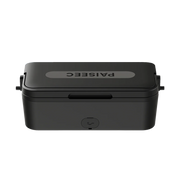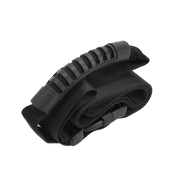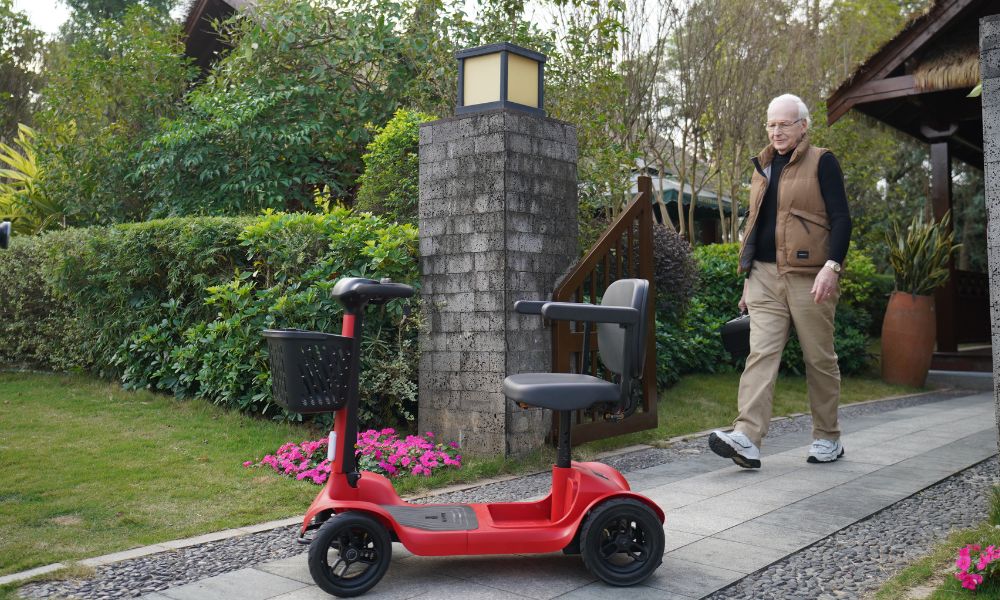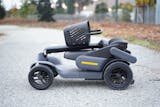Speaking of mobility aids, you may be wondering if a wheelchair qualifies as a medical device. The answer is yes, a wheelchair is considered durable medical equipment (DME) when your healthcare provider deems it medically necessary. DME allows you to get insurance coverage for a wheelchair, giving you the support you need for daily activities and an improved quality of life.
In this article, we’ll explore the criteria that categorize a wheelchair as a medical device and the benefits it brings to you as a user.
What Mobility Aids Are Classified as Medical Devices?
Wheelchair
If you have limited mobility, a manual or electric wheelchair can help you get back some independence and make your daily activities easier. And as a common medical device, wheelchairs are often recommended for people who need long-term mobility support.
Walker
If you need more stability when walking, tools such as walkers, rollators, or canes are also important medical devices. They can help you maintain your balance and reduce the risk of falling. It also improves mobility during rehabilitation and ensures you are on your feet.
Mobility Scooter
If you can walk short distances but have difficulty walking longer distances, mobility scooter can give you more help. Its 4 wheel scooter type can give you more independence in your daily life, making tasks such as shopping or going out easier and allowing you to move freely and comfortably.
Knee Scooters
If you have an injury to your foot or ankle, a knee scooter may be a better medical device choice than a cane. This is because it can reduce pressure on the injured area while still allowing you to move freely. If your recovery period is long, this medical device is very practical and can make your recovery process smoother and more comfortable.

Does Insurance Cover Wheelchairs as Medical Equipment?
Wheelchairs are covered under durable medical equipment (DME), but there are some key things you need to know. First, your healthcare provider will need to determine if a wheelchair is medically necessary and will need a prescription from a doctor to describe your condition. Also, because coverage varies by insurance plan, it’s important to check with your provider for details. Generally, Medicare, Medicaid, and many private insurance companies offer wheelchair support.
For example, if you have Medicare, it will typically cover 80% of the cost of a wheelchair as long as your doctor confirms it’s medically necessary. You’ll be responsible for the remaining 20% and any annual deductible. If you’re enrolled in Medicaid, wheelchair coverage may vary by state, but it will typically cover all or part of the cost if your doctor deems it necessary.
Most private insurance plans also cover wheelchairs, but you may face some out-of-pocket costs, such as copays or deductibles. Additionally, some plans may require you to rent a wheelchair before they’ll allow you to purchase one outright. Therefore, understanding your wheelchair coverage will help you navigate the process and ensure you get the support you need for mobility.
What Types of Medical Conditions Require a Wheelchair?
- Spinal Cord Injuries: If you’ve experienced a spinal cord injury, it can result in partial or complete paralysis, making it difficult to move around. In such cases, a wheelchair becomes essential for maintaining your independence and getting around safely.
- Neurological Disorders: Conditions like multiple sclerosis (MS) or Parkinson’s disease can seriously affect your motor control and coordination. If you’re facing mobility challenges because of these disorders, a wheelchair can provide the support you need to navigate daily life.
- Cerebral Palsy: If you have cerebral palsy, which impacts movement and muscle coordination, a wheelchair may be necessary for getting around. It can help you maintain mobility and independence despite the challenges posed by the condition.
- Stroke: After a stroke, you might experience paralysis or weakness on one side of your body, which can make walking difficult. Using a wheelchair can give you the mobility support you need during recovery or for long-term challenges.
- Muscular Disorders: If you have a muscular disorder like muscular dystrophy, you may find that your muscles weaken over time, limiting your ability to walk. A wheelchair can be a crucial tool for moving safely and comfortably as you manage the condition.
What Types of Wheelchairs Are Classified as DMEs?
Manual wheelchairs
If you need a wheelchair, you may want to consider buying a manual wheelchair so that you can push yourself or have a caregiver help you. Manual wheelchairs are great for basic mobility, and lightweight versions are easier to transport.
Electric wheelchairs
If you find using a manual wheelchair difficult, an power wheelchair may be the best option for you. They are battery-powered and easy to control with a joystick, making you comfortable and less stressed.
Pediatric wheelchairs
If you are a parent looking for a wheelchair for your child, pediatric wheelchairs are designed for children who need long-term mobility support. They are available in both manual and electric options, and their adjustable features allow them to grow with your child, ensuring they have the right support as they grow.
Custom or Specialized Wheelchairs
If you have specific medical needs, a custom or specialized wheelchair may be what you need. It can be tailored to your unique needs, providing a personalized solution to your mobility issues.

What Are the Benefits of Using a Wheelchair as Medical Equipment?
There are many benefits to using a wheelchair as a medical device, such as improving the quality of life for people with limited mobility. Here are some of the main benefits:
1. Increased Mobility and Independence: A wheelchair lets you move around freely, giving you greater independence in your daily activities, whether you're at home or out in public.
2. Improved Safety: Using a wheelchair can help reduce your risk of falls and injuries, especially if you struggle with balance or walking. It provides a safer way to get around.
3. Enhanced Comfort: Many wheelchairs are designed with your comfort in mind, featuring padded seats and adjustable parts. This makes it easier for you to sit for long periods without feeling uncomfortable.
4. Social Engagement: A wheelchair helps you participate in social activities and events, allowing you to stay connected with family and friends and improving your overall well-being.
Conclusion
If you have limited mobility, a wheelchair is an essential companion that helps you get around safely and comfortably. They are considered durable medical equipment (DME) and are ordered by your doctor. Because they are covered by Medicare, Medicaid, and most private insurance.
Plus, you can choose from different types of wheelchairs, such as manual, electric, or pediatric, to fit your or your family’s lifestyle. That way, you can continue to do the things you do with greater independence and quality of life.
Related Reading: Can You Take a Wheelchair on a Plane?























Leave a comment
This site is protected by hCaptcha and the hCaptcha Privacy Policy and Terms of Service apply.